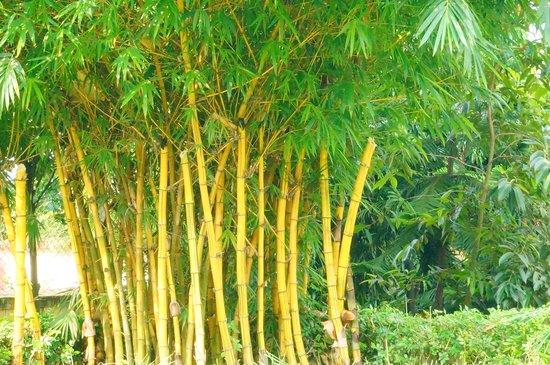 A company in Kenya is training rural and urban communities on growing bamboo, propagating, harvesting and making products, giving income to hundreds and offering a viable alternative to wood that has become expensive in making furniture.
A company in Kenya is training rural and urban communities on growing bamboo, propagating, harvesting and making products, giving income to hundreds and offering a viable alternative to wood that has become expensive in making furniture.
Kenya Bamboo Center, which is now working with groups in Korogocho, Huruma, Embakasi and Suba area in Nyanza trains farmers to appreciate the wonders of bamboo farming, and the market for the over 1500 products that can be derived from the tree.
The project which happened by chance after its manager Pollycurp Akoko Mboyah lost a job in the civil service after having worked for 11 years not only has however been dealing with the herculean task of popularizing a tree that takes between two to five years to mature, in a society used to quick returns. “The first group we dealt with in Huruma and which was our pilot project was such a tough task. While the group members warmed up to the idea at first, they patience died down when after an year they still could not harvest the tree. They had been used to getting instant income. They ended up uprooting the trees,” said Mboyah.
But Mboyah said those who have braved on now know the benefit of farming the bamboo and are reaping from it.
The center sells seedlings to the farmers, then trains the farmers on good management practices of the tree including propagation, watering, when and how to harvest to ensure that the final wood is hard enough. “Again there has been a problem with harvesting the wood by some farmers. So we train them how to harvest, dry the wood first and make sure that the final product is good enough to sell to clients. It makes all the difference in determining whether a client will come back,” Mboyah added.
The company has gone further and imported a variety of modern and better maturing seeds which they are raising as seedlings in their nurseries with a view to introduce it to the farmers.
According to Mboyah the market for bamboo has grown tremendously in the recent past, with the international market looking at Africa to supply the raw and finished products.
Infact Mboyah's first seeds were given to him by an Italian social entrepreneur who was working on a bamboo project in Huruma.
A Nowergian company, Waterstorm, working with the GreenBelt Movement has also planted two acres of bamboo in Maragua area of Murang'a county, with a view to harvesting the bamboo to make flooring tiles. Kenya Bamboo Center is working with the company to create market for its groups.
But Mboyah want to train farmers to make low cost bamboo products tailored for the local market to get them to appreciate the monetary value of the tree. “We want to train them to make products that have a high demand locally like cooking sticks, chapati rolls and table mats for starters. Already we have received orders as far as Greece for table mats. The market has expressed huge appetite for bamboo products,” Mboyah said.
As a champion of changing perception on the benefits of bamboo farming, Mboya has been walking a tight rope in convincing farmers of the plants' benefits. In Suba area of Nyanza where a project was introduced to get the farmers to move from tobacco farming to cultivation of bamboo, farmers uprooted the bamboo trees three months after planting for what they called ' not getting returns first.'
But Mboyah insists that the over 200 bamboo species are more than just trees and are key in environmental conservation by being able to absorb up to 12 per cent of greenhouse gases like carbon dioxide, for every hectare. “The beauty with bamboo again is that you can harvest the same every year compared other trees,” he added.
This would be welcome news to the country which has been reeling under acute shortage of timber which has seen it turn to imports, and spending over Sh3billion.
Besides bridging the shortage, this would also open the entrepreneurs in the bamboo business to an international market with an insatiable appetite, with the industry's worth currently standing at $11 billion annually according to the International Network for Bamboo and Rattan (INBAR).
China has perfected the bamboo market and currently remains the largest producer globally, at 80 per cent of all global production, and using 60 per cent of it for local consumption.
For more information contact below:
Pollycurp Mboyah- Manager
Cellphone: 0713804236
















Comments powered by CComment